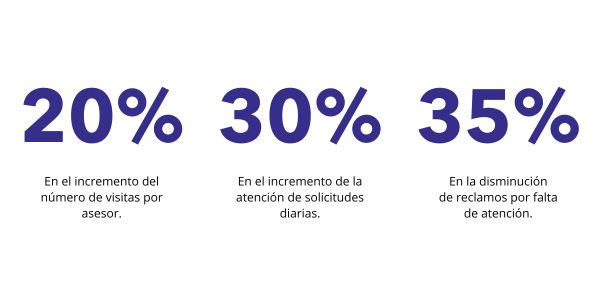La nube y las tecnologías móviles están redefiniendo la forma en que operamos y nos interconectamos. Para los gerentes de servicio en campo, estas innovaciones son esenciales, ya que ofrecen vías para optimizar procesos y elevar la calidad del servicio al cliente. Mantenerse al día con las tendencias en la gestión de servicios de TI no es solo una ventaja, es una necesidad para cualquier empresa que aspire a la eficiencia operativa y a un sistema de gestión de servicios robusto.
El informe anual de Gartner para la Gestión del Servicio Móvil evalúa las soluciones de gestión de servicios en campo y presenta las tendencias clave que los gerentes deben considerar. A continuación, exploraremos las cinco razones fundamentales para elegir un software de servicio en campo, destacando cómo Aranda Field Service (AFLS) satisface estas necesidades como una solución integral para la gestión de servicios en campo.
1. Mantenerse Conectado – En Cualquier Momento y Lugar
El trabajo de servicio en campo exige estar constantemente conectado e informado. Por eso, es imprescindible que el software de gestión de servicios que utilicen tus gerentes y técnicos funcione sin problemas a través de diversos dispositivos móviles. Además, debe ofrecer funciones complementarias esenciales, como la facturación y la gestión de la red. De hecho, según Gartner, un software de gestión de servicios también debe incluir funciones sociales robustas para mantener a los técnicos y al personal administrativo conectados en el campo. Es precisamente aquí donde la conectividad ininterrumpida y las herramientas integradas de Aranda Field Service (AFLS) se vuelven cruciales para una gestión de incidentes efectiva y un soporte técnico ágil.
2. El Móvil es un Deber para el Soporte en Campo
Hoy en día, es imposible pasar por alto la importancia de tener fuertes capacidades móviles para el software de servicio en campo. Intentar navegar por un software complejo que no está optimizado para dispositivos móviles es un gran problema para quienes trabajan en ruta. Los equipos de servicio en campo necesitan aplicaciones móviles de alto funcionamiento que permitan a los usuarios acceder a herramientas críticas como la gestión de inventario, ventas y ofertas de servicio. La movilidad, conectada por un sistema de mesa de ayuda eficiente, garantizará una gestión de incidentes efectiva y un soporte al cliente ágil. Un software de atención al cliente robusto debe priorizar la experiencia móvil para optimizar la productividad en campo y la gestión de tickets desde cualquier lugar.
3. Los Modelos de Implementación Sí Importan
Al elegir un software de gestión de servicios, los gerentes de servicio en campo deben considerar cómo se va a desplegar la solución (por ejemplo, solución SaaS) y determinar qué funciona mejor para su organización. De acuerdo con Gartner, los modelos SaaS son cada vez más populares entre los equipos de gestión de servicios en campo, quienes valoran la conveniencia, simplicidad y el ahorro de costos que vienen con el software basado en la nube. Es una excelente idea elegir un software de gestión de servicios que se construya en torno al modelo SaaS, así todo funciona sin problemas y el negocio puede evolucionar a grandes escalas. La flexibilidad de los modelos SaaS, junto con una plataforma de mesa de ayuda o service desk web, definirá la eficiencia operativa de tu empresa y se adapta perfectamente a la mesa de ayuda online.
4. La importancia de la integración de software
Realizar tareas de servicio en campo a menudo implica el uso de aplicaciones ERP, CRM o Service Desk. Por lo tanto, es cada vez más importante, a la hora de escoger un software de gestión de servicios, que se comunique eficazmente con otros sistemas. Según el informe de Gartner, los proveedores más sólidos demostraron que podían integrarse fácilmente con aplicaciones de negocios de terceros. La capacidad de integración con plataformas de mesa de ayuda, software de gestión de tickets y sistemas ITIL, será fundamental. Un verdadero sistema de gestión de servicios de TI debe asegurar una comunicación fluida entre todas las herramientas, facilitando la gestión de tickets y el soporte de TI en campo. Esta integración de sistemas es clave para una gestión de activos de TI eficiente y la implementación de una robusta CMDB.
5. Sintonización con Otras Tecnologías para la Innovación
Las tendencias tecnológicas como la nube y la movilidad dominan el mercado actual. Sin embargo, también es importante mantener un ojo en otras tecnologías más nacientes, como la realidad aumentada, los dispositivos portátiles, la tecnología de drones e incluso las impresoras 3D. Los gerentes de TI o directores deben buscar proveedores innovadores que ya estén experimentando con estas nuevas tendencias para mantener una ventaja competitiva. La visión de Aranda Software incluye la adaptación a estas innovaciones para ofrecer un service desk aún más avanzado, capaz de gestionar un ticket complejo a través de un service desk con la máxima eficiencia.
La movilidad proporciona a las empresas de servicios una resolución rápida a sus problemas, permitiendo atender las solicitudes de servicio de forma inmediata, lo que reduce el tiempo y los costos para la organización. Esta alta capacidad de respuesta beneficia a técnicos de servicio en campo, gestores de servicios, administradores de empresas, la dirección ejecutiva y por supuesto, a los clientes. La productividad del servicio general de la organización puede mejorar hasta un 30% y 40%, mientras la rentabilidad hasta un 20% y un 25%.
Aranda Field Service (AFLS) es la aplicación de georreferenciación diseñada para potenciar la productividad de tu compañía. Permite una gestión óptima de solicitudes, asegurando una respuesta oportuna de especialistas en campo. Esto se traduce directamente en un servicio al cliente más eficiente y una notable reducción de costos operativos. Con una consola web unificada, implementación ágil y un diseño intuitivo, AFLS facilita la operación diaria. Además, ofrece flexibilidad con modalidad OnPremise o Cloud, soporte local en español y Aranda Query Manager incluido para una reportería robusta. Tu personal en campo solo necesitará un smartphone (Android o iOS) para acceder a órdenes de trabajo y rutas optimizadas.
AFLS se integra a la perfección con nuestra mesa de ayuda, conformando una pieza clave dentro de la Aranda Service Management Suite (ASMS). Esta potente suite va más allá de la gestión de tickets; está potenciada con integraciones nativas a nuestro software de gestión de activos de TI, Aranda CMDB y Aranda Query Manager para una reportería avanzada. Diseñada para atender las necesidades de empresas en todos los sectores que requieren servicios y soporte en sitio, es la solución ideal para proveedores de outsourcing de TI, telecomunicaciones y servicios públicos, entre otros. En un entorno empresarial donde la gestión de servicios de TI es crítica, esta plataforma emerge como la herramienta líder para una gestión integral que garantiza la indispensable continuidad del negocio.
Finalmente, Aranda Software te ofrece soluciones que cumple con las mejores prácticas ITIL v4 y que no solo cumple rigurosamente con los niveles de servicio (SLA), sino que facilita una gestión de incidentes excepcionalmente eficiente. Con nuestras soluciones, tu empresa adquiere las herramientas de ITSM que realmente necesita para escalar a una gestión de servicios de TI de primer nivel, brindando una atención al cliente inigualable.












